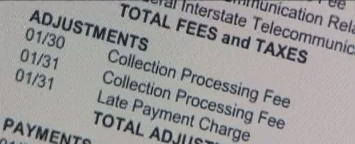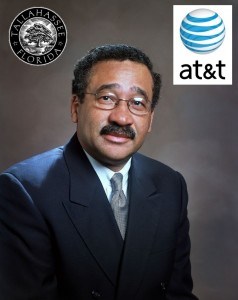 AT&T wireless customers grandfathered on unlimited wireless data plans might want to think twice about calling to protest billing errors, because the company is using the occasion to strip off unlimited data plans from customer accounts.
AT&T wireless customers grandfathered on unlimited wireless data plans might want to think twice about calling to protest billing errors, because the company is using the occasion to strip off unlimited data plans from customer accounts.
Stop the Cap! reader Jess DeSanto is one of thousands of Florida customers who discovered AT&T has a tendency to add “extras” on wireless lines without the customer’s consent. DeSanto had been paying $2.99 a month for “Roadside Assistance,” part of her phone bill since the day she signed up for AT&T, and she never asked for it. She only noticed when a lawsuit required the company to notify customers the service was optional and offered refunds to those paying for the plan without realizing it.
“We always thought it was just one of those fees AT&T puts on our monthly bill, because we have been paying for it ever since we switched to AT&T from T-Mobile,” DeSanto shares. “When we finally learned we should have never had to pay for a service we did not order, we contacted AT&T to have the service removed.”
DeSanto said AT&T promptly took the service off her account, and even refunded more than a year of charges because she never used the service. But the company also quietly stripped the DeSanto family of its grandfathered, unlimited use data plans in the process.
“When I was reviewing the bill, I saw the credits, but I also saw we were suddenly placed on 3GB usage-limited data plans — the unlimited data we had was gone,” DeSanto writes. “Boy was I mad at AT&T.”
 DeSanto had to endure a lecture from a customer service representative about how the unlimited use plan and the 3GB plan were essentially identical. (AT&T throttles the speed customers receive on the unlimited plan after 3GB of usage per month. AT&T will charge customers overlimit fees on the 3GB plan if they exceed their allowance.)
DeSanto had to endure a lecture from a customer service representative about how the unlimited use plan and the 3GB plan were essentially identical. (AT&T throttles the speed customers receive on the unlimited plan after 3GB of usage per month. AT&T will charge customers overlimit fees on the 3GB plan if they exceed their allowance.)
“I told them I don’t want to deal with a sneaky phone company switching my services without my permission in such an underhanded way,” DeSanto said. “It’s like buying a car off the lot and after you sign the papers, they drive up in a different car.”
A manager finally agreed to switch DeSanto back to the plans she originally signed up for, but she is still seething over the affair.
“If you are an AT&T customer, you better scrutinize that bill real careful every month, because you have no idea what they will pull next.”
DeSanto is not alone. A blogger named “Michael” reports his unlimited data plan was also eliminated when he called about another AT&T “billing error”:
I’ve had one of AT&T’s unlimited data plans since I first got an iPhone 3GS not quite three years ago. You can thus imagine my surprise when I checked my bill last month and discovered that I had been switched to 3GB/month limited data plan.
[…] When I finally got a rep on the line, I learned that they had made the change on March 22nd when I had called in about another billing error. As it turns out, when I upgraded my phone, they not only renewed my contract, but they also added roadside assistance ($2.99/month), phone insurance ($6.99/month), and something called the “enhanced mobile protection plan” ($3.00/month). (Note that none of these charges were reflected on my signed contract.)
When I called back in March, I had no trouble getting them to remove the unwanted services and credit me for the charges, but… they apparently took this opportunity to also switch me from my beloved unlimited data plan to a 3GB/month limited data plan. Without my permission.
Michael had no trouble getting his unlimited plan back when he complained. In fact, he was suspicious because it seemed “too easy.”
“[It was sort of] like they’ve been making this “mistake” on purpose and are ready if/when people notice and call in to complain,” Michael writes.


 Subscribe
Subscribe










